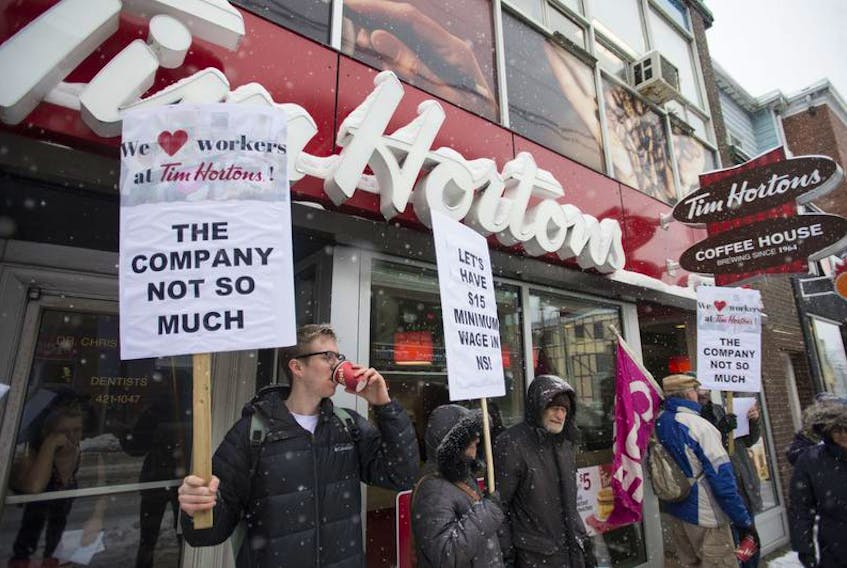In the wake of a growing “Fight for 15" movement in Halifax, Nova Scotia’s minimum wage review committee has recommended an above-inflation increase to the minimum wage for the first time since 2011.
The committee wants us to believe they are recommending a hike because they have suddenly discovered an error in their previous calculations. They point to their error in order to raise the minimum wage while still pretending that setting it is a technical question, not a political one.
But in reality, higher minimum wages are only won by political pressure. Active campaigns to “Fight for $15” have preceded this modest recommended wage boost in Nova Scotia, and the more substantial increases we’ve seen in Ontario, Alberta, B.C. and the U.S. This political pressure has been created by the growing number of working-class people who are fed up with wages that have been too low for too long, and are joining or starting “Fight for $15” campaigns where they live.
If setting the minimum wage was a technical question, it would be much higher. More money in the pockets of low-income people and their families leads to more money being spent in the economy and less going into offshore savings accounts. But higher wages cut into big-business profits. When big business has all the political clout, government feels obliged to run the economy for the big-business bottom line, even if it means running it into the ground.
The Fight for $15 is challenging big businesses’ sway on policy. A higher minimum wage is now so popular that even the Canadian Federation of Independent Business has changed its tune, admitting that increases are necessary. But it’s lobbying governments to take it slow.
But we don’t have to go slow, and certainly not as slow as the McNeil Liberals want to go. All the economic evidence from Ontario, Alberta, Seattle and other jurisdictions that have made big leaps in their minimum wages shows that there are not negative consequences even during the transition. The main economic impact is that thousands of low-income people are better off.
Ontario announced it would increase its minimum wage from $11.40 to $14 in just seven months. That’s a $2.60 raise in one go. Since the increase, Ontario has had its lowest unemployment rate in decades and reported a drop in food bank use.
In contrast, the review committee’s new recommendation takes almost two and a half years to get the tens of thousands of Nova Scotians living on minimum wage to $12.65, which is the committee’s own inadequate definition of the poverty line (a more realistic analysis shows that a living wage in Nova Scotia is closer to $18 or $19 an hour).
So when your paycheque ticks up in April 2019, don’t thank Stephen McNeil or the review committee. Thank the Fight for $15. And don’t just thank the movement, join it. Because we’ve got a long way to go in Nova Scotia to get decent wages and fair workplaces. Joining together and taking political action is the only way we’re going to get there.
Hailie Tattrie and Alyssa Gerhardt are members of Fight for $15 & Fairness Halifax.









